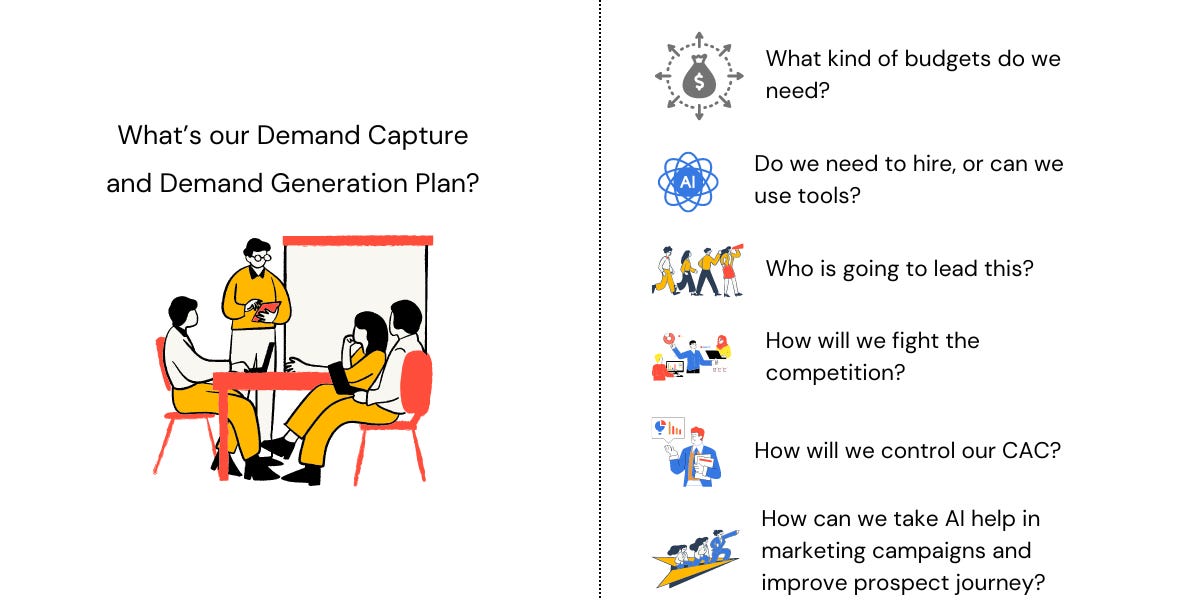AI in Marketing - Top Tools for Automation and Analytics

🌈 Abstract
The article discusses the impact of AI, particularly ChatGPT, on marketing workflows and strategies. It covers the shift from relying on skilled professionals to leveraging AI tools for various marketing activities, including content creation, distribution, and execution. The article provides a comprehensive list of AI tools and their use cases across different marketing functions, along with guidance on how to analyze the performance of these tools and derive insights.
🙋 Q&A
[01] The Impact of AI on Marketing
1. What are the key changes in marketing workflows and strategies due to the introduction of AI tools like ChatGPT?
- The article highlights that the introduction of ChatGPT and other generative AI models has transformed marketing workflows, with AI now automating 60-70% of tasks that previously required a team of skilled professionals.
- The focus has shifted from hiring digital marketing agencies or executives to finding AI tools and agents to automate and streamline marketing efforts, leading to significant cost savings.
- AI has reduced the time to launch SaaS apps by 50-60%, resulting in an abundance of new AI-powered marketing tools in the past 15 months.
2. What are the key questions that marketing leaders now need to address with the availability of AI?
- The article outlines several key questions that marketing leaders need to address, including:
- What is the demand capture and demand generation plan?
- What budgets are needed?
- Should we hire or use tools?
- Who will lead the marketing efforts?
- How can we compete with the competition?
- How can we control our customer acquisition cost (CAC)?
- How can we leverage AI in marketing campaigns without disrupting the prospect journey and customer experience?
3. What are the key initiatives that marketing teams can prioritize to capture and generate demand using AI?
- For capturing demand, the article suggests prioritizing initiatives like performance ads, engaging influencers, thought leadership content, content and SEO, and discussions in industry/target audience communities.
- For generating demand, the article recommends focusing on thought leadership content, influencer engagement, building a community, social media activities, exclusive content, and regular webinars and events.
[02] Choosing the Right AI Tools for Marketing
1. What are the key factors to consider when choosing AI solutions for a go-to-market strategy?
- The article suggests considering the following factors when choosing AI solutions:
- Understanding the content needs of the target audience
- Identifying the platforms and communities where the target audience is most active
- Determining the actions the target audience is willing to take based on their trust level
- Mapping the trust-building steps and the length of the cycle for the target audience
2. What are the three main categories of marketing activities that can leverage AI tools?
- The article outlines three main categories of marketing activities that can leverage AI tools:
- Creation (generating marketing messages and assets that build trust)
- Distribution (identifying the most effective marketing channels)
- Execution (automating ground-level activities to build relationships)
3. What are some examples of AI tools and their use cases across the different marketing activities?
- The article provides numerous examples of AI tools and their use cases, including:
- Content creation: Jasper, Copy.ai for generating outlines, drafts, and refining content
- Report generation: MarketMuse, Grammarly for structuring and drafting comprehensive reports
- Email marketing: Substack, Convertkit, Claude.ai for creating engaging content, automating scheduling, and personalization
- Social media: Taplio, Hypefury, Hootsuite for post creation, optimization, and engagement
- Collaborative content creation: Notion, Google Docs with AI plugins
- Listicle generation: BuzzSumo, Copy.ai
- Video creation and editing: Synthesia, Opus Clip, Simplified
- Podcast production: Descript, Podbean
- Competitive analysis: Jasper, MarketMuse
- Humor and satire generation: Imgflip, Canva with AI features
- Counter-opinion generation: ChatGPT, Jasper
- SEO optimization: SEMrush, NeuronWriter, MarketMuse
- Online course creation: Thinkific, Kajabi, Teachable
- Infographic creation: Canva, Visme
- Social media scheduling and management: Lately, Buffer, Taplio, Hypefury
- Community engagement: Feedly, Circleboom, Whatlist, Taplio, Hypefury
- 1-on-1 outreach: LinkedIn Sales Navigator, WhatsApp Business, Whatlist, Hypefury
- Email automation: Instantly, Lemlist, Hubspot
- Influencer marketing: UpGrow, AspireIQ, Passionfroot, Sparkloop
- Paid advertising: Google Ads, Facebook Ads Manager, LinkedIn Campaign Manager
- Industry collaboration: BuzzSumo, Sprout Social
- Webinar hosting and management: WebinarGeek, Zoom, Airmeet
- Event management: Eventbrite, Hubilo, Airmeet
- Conference management: Cvent, Hopin, Airmeet
- Affiliate marketing: ShareASale, Impact
- Podcast production and distribution: Descript, Buzzsprout
- Interview content repurposing: Zoom, Otter.ai
- Contests and challenges: Gleam, Woobox
- Online training and workshops: Zoom, Thinkific
The article provides a comprehensive overview of the various AI tools and their use cases across different marketing functions, along with guidance on how to analyze the performance of these tools and derive insights.